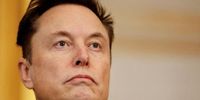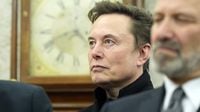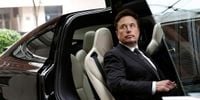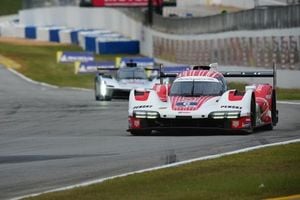On September 5, 2025, Tesla’s board unveiled a compensation package for CEO Elon Musk so staggering, it could propel him into history as the world’s first trillionaire—if, and only if, he can guide the electric vehicle giant through a gauntlet of unprecedented business challenges over the next decade. The proposal, made public through a regulatory filing, has sent shockwaves through the financial world, raising eyebrows and sparking debate about executive pay, corporate governance, and the very future of Tesla itself.
The numbers are eye-popping by any standard. The proposed package could net Musk roughly $900 billion over ten years, paid entirely in Tesla stock, according to filings cited by ABC News. This would dwarf any previous CEO compensation in U.S. corporate history. The catch? Musk only gets the full payout if Tesla’s market value surges from its current $1.1 trillion to a jaw-dropping $8.5 trillion. That’s a leap so ambitious it exceeds the combined market capitalizations of Meta, Microsoft, and Alphabet—the current tech titans—put together.
But market value isn’t the only hurdle. The plan lays out a series of audacious production targets: one million self-driving Robotaxis in commercial operation, one million humanoid robots delivered, and a total of 20 million vehicles sold over the next decade. For context, Tesla delivered just under 2 million vehicles last year. These goals are not just ambitious—they’re transformative, and some analysts argue, nearly impossible given current trends.
As Reuters noted, the proposal is set for a shareholder vote on November 6, 2025. The package itself was reviewed by a committee of independent directors, an attempt to address past criticisms about board independence. In a letter to shareholders, board members Robyn Denholm and Kathleen Wilson-Thompson wrote, “Tesla does not currently have a long-term CEO performance award in place to retain and incentivize Elon to focus his energies on Tesla and lead us through this pivotal moment in our history. It’s time to change that.”
The package’s structure is as complex as it is generous. Musk would receive shares in twelve tranches, each tied to a specific milestone—starting with Tesla reaching a $2 trillion valuation, double its current value. To unlock all twelve, the company must hit every metric, including the $8.5 trillion market cap and the bold production figures. If he achieves every target, Musk’s stake in Tesla would swell from about 13% today to roughly 25%, granting him even greater control over the company’s future.
However, the compensation is not cash—it’s equity, and Musk must remain at Tesla for at least seven and a half years to cash out any shares, and a full decade to claim the entire amount. The plan also requires Musk to develop a succession framework, ensuring Tesla’s leadership pipeline is robust should he eventually step aside.
This proposal comes as Tesla faces mounting headwinds. The company’s profits fell 16% in the quarter ending June 2025, its second consecutive revenue drop. Quarterly profits plunged from $1.39 billion to just $409 million, and revenue missed even the lowered expectations on Wall Street, according to filings cited by The Associated Press. The electric vehicle market is in flux, with Tesla’s core business challenged by intensifying competition from both Detroit automakers and Chinese rival BYD. In Europe, Tesla’s sales plummeted 40% in July compared to the previous year, even as overall EV sales soared, according to the European Automobile Manufacturers’ Association. Meanwhile, BYD’s market share ticked up, overtaking Tesla’s in the region.
Some of the blame, analysts say, falls on Musk’s own public persona and political entanglements. His high-profile support for former President Donald Trump, including a stint as a “special government employee” in the Trump administration and public endorsements of right-wing parties in Europe, have alienated potential customers and sparked protests outside Tesla dealerships worldwide. As Telemetry analyst Sam Abuelsamid put it, “It doesn’t matter how much money he gets. He can’t help himself. And the more he talks, the more he turns off potential customers.”
Even some of Musk’s supporters are wary. Dan Ives of Wedbush Securities told clients, “Fixing the Musk brand damage remains a work in progress.” Yet Ives also acknowledged the board’s logic, stating, “We believe this was the smart move by the Board as the biggest asset for Tesla is Musk.”
The new pay package also arrives amid a swirl of legal drama. Musk’s previous compensation plan, valued at nearly $56 billion in 2018, was struck down twice by Delaware judge Kathaleen McCormick, who cited a lack of board independence and Musk’s undue influence over negotiations. Even after Tesla shareholders voted to reinstate the package in June 2024, the court ruled that a new vote could not cure the original flaws. In response, Tesla moved its incorporation from Delaware to Texas in late 2024, a move widely seen as an effort to sidestep further legal obstacles. An interim $29 billion stock grant was also approved this year, provided Musk stays on as CEO until 2030.
Musk’s current net worth hovers around $430 billion, according to Forbes, making him already the world’s richest person. But if he pulls off this high-wire act, he would become the world’s first trillionaire. The stakes are enormous—not just for Musk, but for Tesla’s shareholders, employees, and the broader electric vehicle industry. Seth Goldstein, an analyst at Morningstar, summed it up: “It rewards Musk for growing Tesla’s market cap and delivering strong shareholder returns. This removes a key near-term risk for the stock if Musk were to leave Tesla.”
Musk himself, never one to shy away from the spotlight, joked during a recent earnings call, “As I mentioned before, I think my control of Tesla should be enough to ensure that it goes in a good direction, but not so much control that I can’t be thrown out if I go crazy.”
Yet the road ahead is anything but certain. Meeting the aggressive targets will require not just technological innovation and operational excellence, but also a delicate balancing act on the world stage—navigating political controversies, legal battles, and fierce global competition. The November shareholder vote looms large, and the world will be watching to see if Tesla’s investors are ready to bet on Musk’s vision, however audacious it may be.
With so much at stake, Tesla’s future—and Musk’s legacy—hang in the balance, teetering between extraordinary ambition and the harsh realities of the global marketplace.






